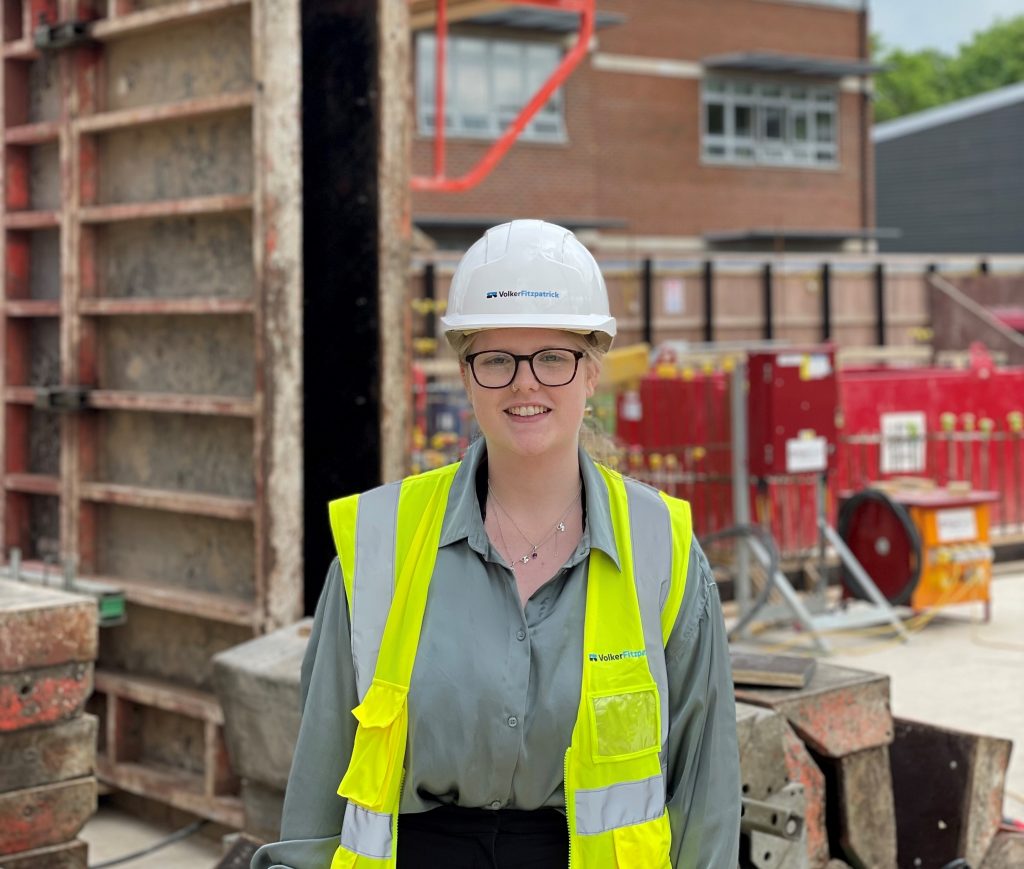Careers and Gender Q&A with an Architecture student
Hi, my name is Danielle and I am studying B(Arch) Architecture, currently in my placement year (third year). During my placement year I have worked for three different companies in the architectural and construction industry and I will be back in Loughborough for my final year this September.

What made you want to pursue Architecture – were you influenced by a role model, or was it down to subjects you enjoyed?
The starting point for my interest in architecture evolved from living just a train journey away from London. Each time I visited, I explored a different part of London and fell in love with its Architecture and growing built environment. I was inspired by one architect in particular during Sixth Form: Norman Foster. Through my Art A-Level, I had the opportunity to write a Personal Study through which I explored in what ways had Norman Foster’s style been influenced by the Modernist architecture movement. This furthered my interest in the subject as I was able to explore architectural history and theory as well as architectural design.
Were there any subjects at GCSE (or A Level) that made you think Architecture would be a good subject to study at a higher level?
I studied Art at both GCSE and A-Level which allowed me to explore Architecture in more depth and develop my interest in this subject. I particularly enjoyed the freedom that studying Art provided, as I was able to focus on Architecture for a project, which ultimately led to my decision to pursue at University. I was also studying Maths at A-Level, which developed my interest in the technical side of Architecture.
At A-Level I studied Art, Maths, Business Studies and Spanish (AS Level). Before choosing my A-Level options I did some research to see which A-Levels universities required for Architecture. I found that most universities preferred applicants to have Art A Level or Graphics/Product Design and a small portion required Maths and potentially Physics. However, it depends on the type of course you apply for, whether that’s a B(Arch), BSc (Hons) or a BA (Hons), so make sure to research what each university is looking for.
Have you faced any challenges along the way? Such as not being given access to information or being put off because of your gender?
Being the only student from my school to apply to Architecture was challenging initially; I felt there was much more support put in place for other courses with a high volume of students applying. However, when visiting open days, I made sure to ask lots of questions regarding the application process, what the course was like and entry requirements. I presented the information to my teachers who then advised me during the application process. When visiting Loughborough University, it was so encouraging to see such a large number of females studying Architecture, challenging the stereotype that the Architecture, Construction and Engineering industry is male-dominated.

You are on placement now, how have you found being in industry?
I have thoroughly enjoyed my time in the industry, being exposed to several different work environments. During my first placement, I was surrounded by female architects which was extremely empowering and inspiring to me. It was great to learn about their experiences in the industry and how it had developed over time. For my second placement, I was able to gain experience in a larger construction firm. Despite the projects I worked on being heavily male-dominated, it was promising to see the vast number of females throughout the business, including female apprentices and females in high authority positions.

Why do you think the uptake of subjects such as Architecture is still low for females? In your opinion, do you think this is changing?
I think there still remains a significant stigma surrounding females in the Architectural industry, fuelled by the male-dominant culture. However, I feel that this preconception is being challenged by the promotion of Women in Stem and Universities seeing an increased number of female applicants to Architecture. In particular, it was great to see a 50/50 split of female to male in my LU-Arc cohort, as well as a levelled ratio amongst LU-Arc staff members, inspiring and encouraging female engagement in the field. In 2020, Loughborough University’s Architecture programme saw a rise in female applicants, resulting in 67% of the cohort being female. This is extremely promising, setting a standard to follow and one which will hopefully continue to develop in the professional work environment in the coming years.
What are your career plans?
After returning for my final year and graduating from Loughborough University, I would like to gain some more industry experience in the architectural and construction field expanding upon the knowledge I have learnt this year. I hope that my year in the industry as a graduate will aid in my decision to undertake the Master’s programme in Architecture, following the path to becoming a fully qualified architect.

Any advice you would give to students thinking about their Post-16 options and university? What research would you recommend?
My advice would be to research as much as you can on areas that interest you. Make a list of all the subjects that you enjoy and could see yourself potentially studying at university or working in the industry. From this, you can look at a range of university courses that might be suited to your interests. The most important factor to consider is whether you will enjoy studying this subject at university! You can visit university websites and look at module breakdowns to see what you will be studying.

Student Life
Find out what makes 'The Loughborough Experience' by reading our student blogs.